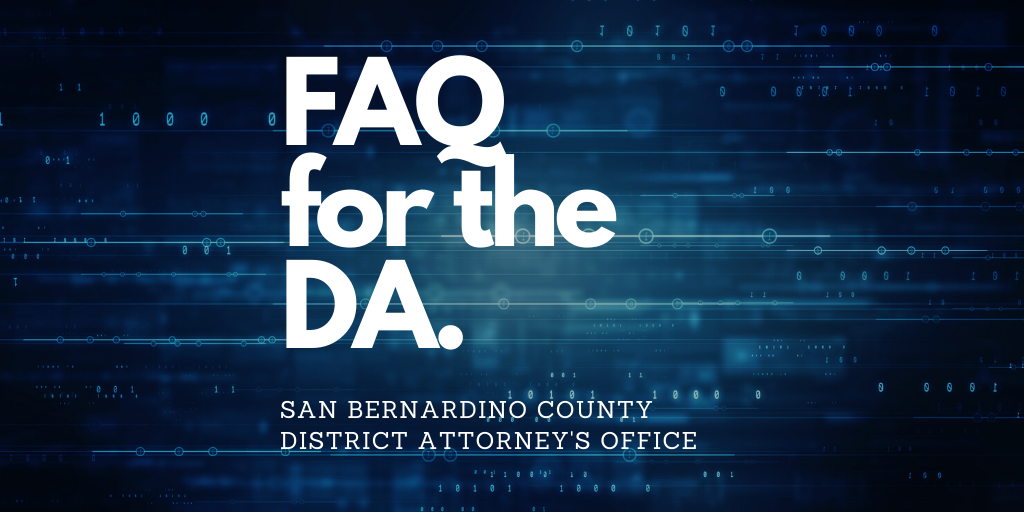Threatening someone to not testify in a case can lead to criminal charges for those attempting to impede justice.
If you are the victim or witness in a criminal case, and anyone attempts to persuade you not to testify, you should notify the deputy district attorney involved in the case as soon as possible. If the threat is imminent or urgent, please call 911.
Is There A Law About This?
Whenever anyone knowingly and maliciously prevents or dissuades any victim or witness from testifying or attending a trial, proceeding, or inquiry, they are guilty of a misdemeanor crime. Merely attempting to dissuade a victim or witness is also a crime.
It is also a violation of the law for a person to threaten a crime victim, or a witness to a crime, not to report being victimized to any peace officer, probation, parole, or correction officer, prosecuting agency or judge.
Penal Code Section 136.1 – Prevent, Dissuade, or Intimidate A Victim or Witness
(a) Except as provided in subdivision (c), any person who does any of the following is guilty of a public offense and shall be punished by imprisonment in a county jail for not more than one year or in the state prison:
(1) Knowingly and maliciously prevents or dissuades any witness or victim from attending or giving testimony at any trial, proceeding, or inquiry authorized by law.
(2) Knowingly and maliciously attempts to prevent or dissuade any witness or victim from attending or giving testimony at any trial, proceeding, or inquiry authorized by law.
(3) For purposes of this section, evidence that the defendant was a family member who interceded in an effort to protect the witness or victim shall create a presumption that the act was without malice.
(b) Except as provided in subdivision (c), every person who attempts to prevent or dissuade another person who has been the victim of a crime or who is witness to a crime from doing any of the following is guilty of a public offense and shall be punished by imprisonment in a county jail for not more than one year or in the state prison:
(1) Making any report of that victimization to any peace officer or state or local law enforcement officer or probation or parole or correctional officer or prosecuting agency or to any judge.
(2) Causing a complaint, indictment, information, probation or parole violation to be sought and prosecuted, and assisting in the prosecution thereof.
(3) Arresting or causing or seeking the arrest of any person in connection with that victimization.
(c) Every person doing any of the acts described in subdivision (a) or (b) knowingly and maliciously under any one or more of the following circumstances, is guilty of a felony punishable by imprisonment in the state prison for two, three, or four years under any of the following circumstances:
(1) Where the act is accompanied by force or by an express or implied threat of force or violence, upon a witness or victim or any third person or the property of any victim, witness, or any third person.
(2) Where the act is in furtherance of a conspiracy.
(3) Where the act is committed by any person who has been convicted of any violation of this section, any predecessor law hereto or any federal statute or statute of any other state which, if the act prosecuted was committed in this state, would be a violation of this section.
(4) Where the act is committed by any person for pecuniary gain or for any other consideration acting upon the request of any other person. All parties to such a transaction are guilty of a felony.
(d) Every person attempting the commission of any act described in subdivisions (a), (b), and (c) is guilty of the offense attempted without regard to success or failure of the attempt. The fact that no person was injured physically, or in fact intimidated, shall be no defense against any prosecution under this section.
(e) Nothing in this section precludes the imposition of an enhancement for great bodily injury where the injury inflicted is significant or substantial.
(f) The use of force during the commission of any offense described in subdivision (c) shall be considered a circumstance in aggravation of the crime in imposing a term of imprisonment under subdivision (b) of Section 1170.
Why Is It Important To Testify
When the district attorney’s office prosecutes an individual or entity for a criminal violation, there are many key components to the prosecution, which include:
- Law enforcement reports
- Law enforcement testimony
- Crime scene evidence, such as weapons, clothing, and other objects
- Crime scene photographs, videos, and notes
- Victim testimony
- Witness testimony
- Statements from the defendant
Testimony from a victim or witness is one of the most important parts of these components. No one can provide a more real account of the impact of a crime than those who experience it first-hand. Victims and witnesses can also answer questions that others may not be in the position to do so.
What Will Happen When You Report Being Threatened
When a report is made to the district attorney’s office about this type of a crime, an investigation will be launched by the San Bernardino County District Attorney’s Office’ Bureau of Investigation. This unit consists of law enforcement officers who investigate crimes on behalf of the district attorney’s office. The investigation may include the gathering of evidence and arrest of those responsible for committing the crime. The case will then be forwarded to the prosecutorial unit of the district attorney’s office for filing consideration.
